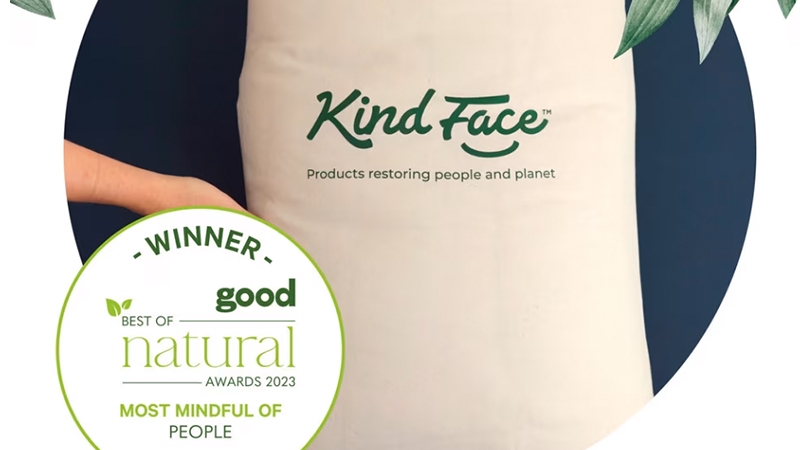Food is fundamental to our wellbeing. It draws us together as families and commmunities. It gives us an excuse to travel, a reason to socialise and a structure for our days. So how come good food is increasingly making us sick?
The number of children in the Western world who have allergic reactions to everyday foods has skyrocketed in the past decade. What’s going wrong with our kids?
According to one recent study by Melbourne’s Royal Children’s Hospital, ten percent of infants had developed a food allergy by the time they were a year old. “Not only do we have more children that are allergic to food, their allergic reactions are far more severe,” says Dr Elizabeth Forbes-Blum, a postdoctoral research fellow and allergy specialist at Wellington’s Malaghan Institute. We’re facing an allergy epidemic, she says. “It’s real, it’s here, and it’s going to cost these kids dearly if we don’t deal with it.”
But what’s causing this spate of food allergies? And why are there so many more allergy sufferers now, even though the rates of other childhood illnesses are declining? It doesn’t help that rumours and misinformation about how to prevent allergies and how they get started are rife.
Here are five commonly held food allergy myths – busted:

Allergy and intolerance are different names for the same thing
Take a closer look at the human body and you’ll find there’s a clear distinction between the two. A food allergy is your immune system’s reaction to a protein in something you’ve eaten. It mistakenly believes the protein is harmful and, like an overzealous parent, swoops in with antibodies to destroy it. Allergic reactions can be life-threatening and usually occur immediately after eating – nausea, swelling, vomiting, or in extremely severe cases, anaphylactic shock.
More than 90 percent of food allergies are caused by a few common culprits: pasteurised cow’s milk, hen’s eggs, peanuts, tree nuts, wheat, shellfish, fish and soy.
A food intolerance, by comparison, doesn’t involve the immune system mistakenly deploying its defences. Rather, it describes what happens when your body can’t handle certain chemicals, such as salicylates in fruit, gluten in wheat, or lactose, the sugar found in milk products. Lactose intolerance, for example, occurs when your small intestine doesn’t make enough of the enzyme it needs in order to digest lactose, a sugar found in milk. Symptoms can appear minutes or days after eating the offending food, while some people can eat small quantities of what they’re sensitive to without suffering unpleasant consequences.
Australian studies have found that babies who started eating eggs between four and six months of age were five times less likely to develop an egg allergy than children who avoided eggs before their first birthdays.
Kids develop allergies because the grow up in an ultra clean environment
But why the dramatic rise in food-related illness? Our genes haven’t changed – but our environment has, points out Professor Graham Le Gros, director of the Malaghan Institute. One explanation, nicknamed the ‘hygiene hypothesis’, suggests the surge in allergies is due to children growing up in settings that are just too clean. Without a multitude of germs to defeat, the theory goes, our immune systems lack a ‘normal’ workload, seek out something to attack and turn on harmless food proteins.
But before you feed your kids unwashed vegetables or suggest a mud-themed playdate, Le Gros notes that it’s not simply a lack of germs that’s the problem – it’s a lack of the right germs. If microbes were organised into armies, one group of bugs would form the Peace Corps, preventing the human immune system from attacking innocent food proteins. “We’ve got some very clear evidence that certain kinds of bugs have got very powerful mechanisms for suppressing the initiation of an allergic response,” says Le Gros.
Australian allergy specialist Dr Susan Prescott writes in The Allergy Epidemic (UWAP 2011) that Western babies’ guts have been found to contain lower numbers of ‘friendly’ bacteria, such as bifidobacteria and lactobacillus. Meanwhile, other studies have shown that children who develop allergies have less diverse gut bacteria than others. “The pattern of colonisation [by bacteria] in the first weeks of life may influence the patterns of immune development,” says Prescott.
Eating gluten free is better for you, even if you’re not intolerant or allergic
Coeliac disease is an autoimmune disorder that affects about one percent of Kiwis – and a gluten-free diet is a necessity if you’re a sufferer. It’s serious stuff: any gluten that enters the gastrointestinal tract, even miniscule amounts, damages the small bowel and blocks the absorption of nutrients. University of Maryland coeliac researcher Dr Alessio Fasano estimates that another six to seven percent of the population experiences gluten sensitivity. While these people can have some pretty unpleasant symptoms after eating gluten, their gut isn’t damaged and they may even be able to consume small amounts without experiencing discomfort.
But for the vast majority of Kiwis who can eat wheat products without feeling sore in the stomach, there’s no reason to avoid gluten. Gluten-free isn’t a synonym for healthy or low-carb. Since gluten is what gives bread its fluffiness, it’s often the case that gluten-free loaves include more sugar and fat in order to mimic the texture we associate with bread baked with conventional flour.
That said, reducing your consumption of white, refined wheat flour and replacing it with vegetables or grains such as quinoa, which contains more nutrients than wheat, is bound to leave you with a spring in your step.

Avoiding certain foods during pregnancy, or when a child is young, helps prevent allergies
Once it was through that simply keeping potential ‘triggers’ at bay would stop allergies in their tracks. Pregnant women were advised to shun peanuts, while infants have been guarded against animal products and family pets.
But research has shown that attempts at avoidance are likely to make children more susceptible to allergies rather than less. “Throughout [the 2000s] where avoidance was the mandate, food allergy around the Western world skyrocketed,” says Forbes-Blum. “That’s when the epidemic began.”
Australian immunologist Professor Katie Allen found that babies who started eating eggs between four and six months of age were five times less likely to develop an egg allergy than children who avoided eggs before their first birthdays. Similarly, a King’s College London study of Jewish children in Israel and the UK found that the Israeli kids were less likely to develop peanut allergies, despite the nuts featuring more prominently in their diets.
“There’s an understanding that there’s a very important window soon after you’re born where anything you eat is very important in tolerising, or making yourself not allergic to, those things,” says Professor Graham Le Gros. He says more research into these crucial early months is needed. “Not putting anything [but mother’s milk] in the kid’s mouth may be preventing a very important part of human immune system development.”

Most people who say they have food allergies or intolerances are faking it
There’s a perception that people who say they’re food intolerant are just a bit precious – attention – seeking individuals who need to get over themselves and have normal milk in their coffee like the rest of us. Is this true? Well, yes and no.
According to a study in the Journal of the American Medical Association, nearly a third of Americans believe they have a food allergy, but less than five percent actually do. Meanwhile, an Italian study conducted by the University of Milan found that the vast majority of participants who claimed they were lactose intolerant were in fact perfectly capable of digesting it. (The study’s authors concluded their subjects were experiencing digestive discomfort due to their stressful lifestyles and high-fat diets, rather than to lactose).
We’re not very good at diagnosing ourselves, it seems. While allergic symptoms can’t be ignored, food intolerances are much more difficult to pinpoint. Identifying the root cause of post-mealtime unpleasantness involves a strict diet, eliminating first one potential irritant and then another. This is easier said than done; gluten, for instance, turns up in soy sauce, ice cream and lipstick.
University of Portsmouth allergy specialist Dr Carina Venter warns against cutting food groups out of your diet without solid evidence for doing so. “The health implications of limiting your diet can be far worse than food allergies or intolerances themselves,” she told British newspaper the Daily Mail. “It only takes a few years of cutting food groups out to have a much longer-term impact.”
If your child has a food allergy, the New Zealand Medical Journal recommends that you have him or her reviewed regularly to ensure their diet is not unnecessarily restricted. Though there’s no cure for allergies as yet, around 80 percent of children with wheat, egg and dairy sensitivities will grow out of them by their tenth birthdays.
But it’s important not to trivialise the problem, says Forbes-Blum. “People believe this epidemic is just overzealous parents or overzealous GPs diagnosing these kids with eczema and food allergies. That’s not the case.”





